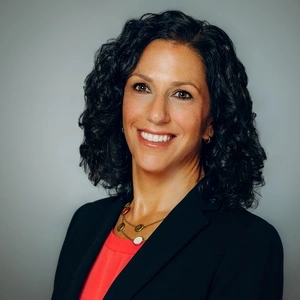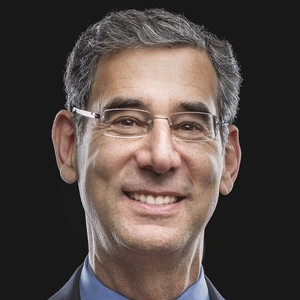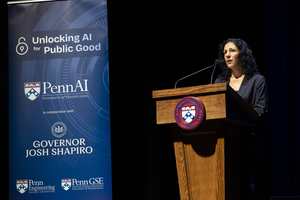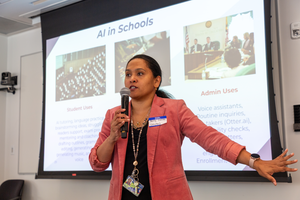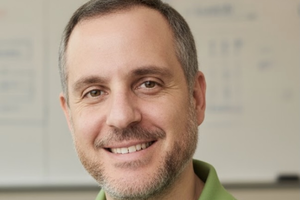Faculty Expert
-
Katharine O. Strunk
Dean, Graduate School of Education
Policy, Organizations, Leadership, and Systems Division -
L. Michael Golden
Vice Dean of Innovative Programs and Partnerships, Catalyst @ Penn GSE
Policy, Organizations, Leadership, and Systems Division
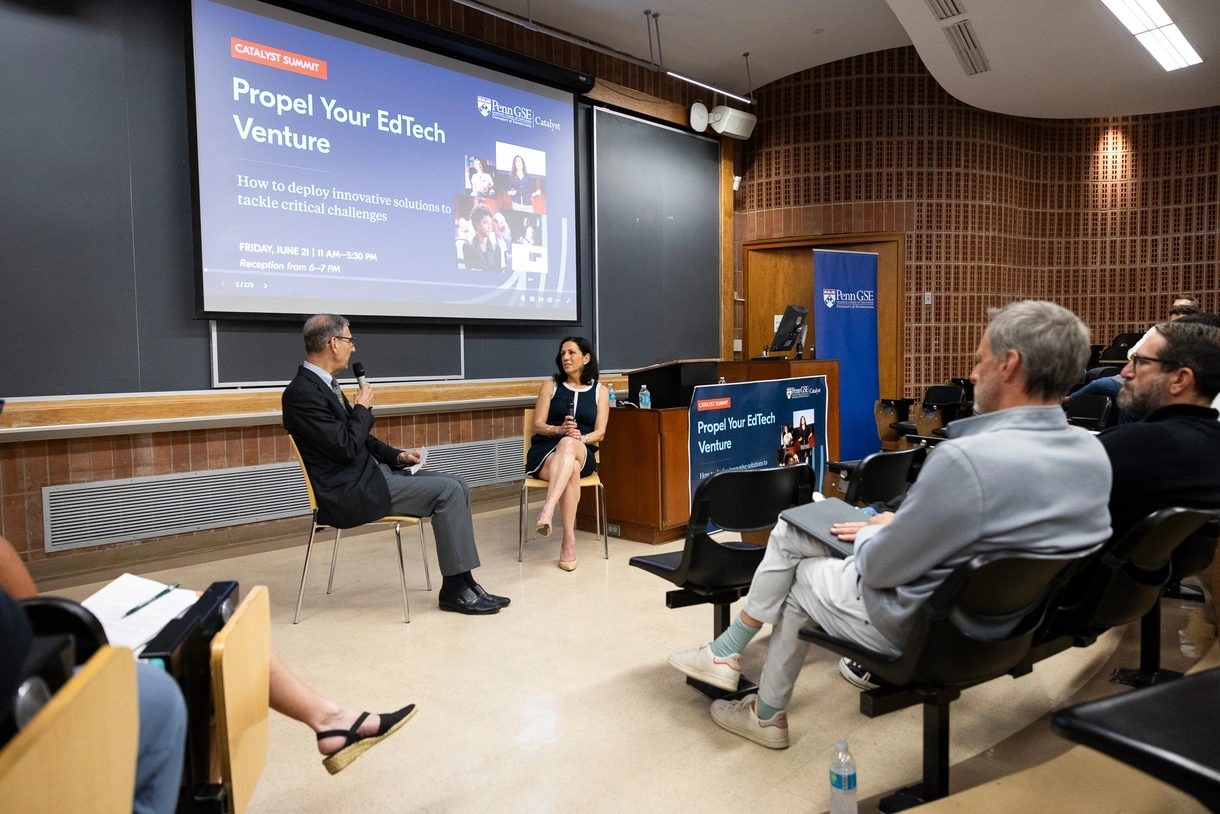
Technology is opening up new ways for educators to serve students.
But to realize the full potential of breakthroughs in artificial intelligence, machine learning, and new communication platforms, new approaches will need to be rooted in research. And educators will have to feel confident when introducing these technologies to their practice and their students.
Catalyst @ Penn GSE recently held a “Propel Your EdTech Venture” summit, bringing together researchers, founders of EdTech ventures, officials from the U.S. Department of Education, and leaders from a variety of companies at the forefront of innovation. Entrepreneurs learned strategies to overcome critical challenges and drive sustainable growth in four areas — finance, product, market, and leadership — with a focus on putting research into practice.
In a welcoming conversation with Vice Dean of Innovative Programs and Partnerships Michael Golden, Penn GSE Dean Katharine Strunk said the school can help entrepreneurs ask better questions, test and refine their solutions, and train educators on the most advanced pedagogies.
Educators should be critical of AI, but not skeptical, Strunk said. She noted how researchers, including at Penn GSE, are exploring if AI can give educators insights into a student’s mental health and well-being based on how their responses to assignment questions might vary from day to day.
“AI is going to free up teachers’ and counselors' space so they can be attuned to the relationships, which we know are fundamental to education,” Strunk said. “Those opportunities are often overlooked by people who think AI is going to be a replacement for teachers. Educators are searching for ways to offer these types of supports. Together, we can give them tools to do it."
John Gamba, entrepreneur in residence, meets with many EdTech founders who are focused on how their company can grow. But he stressed that for a company to be scalable and ultimately investible, it has to make a difference for learners.
“You have to be intentional about what underlying research you are bringing to your venture,” Gamba said. “It has to be research-based from the beginning. It has to be outcome-based."
A key theme of the Propel Your EdTech Venture summit was building expertise into any new venture. Lara Paparo, executive director of the Penn Literacy Network, and Thinkist leaders Jared Wells and Mark Manasse discussed their collaboration on a $2 million federal grant to expand peer-to-peer tutoring in rural Pennsylvania that will begin piloting this fall.
They offered advice on how to connect with researchers and how to build out a team.
“Don’t try to sell us on your venture,” Paparo said. “Think about how to position the conversation so you can talk about the impact you want to make, not your product. Think in terms of your passion, and your why. Your why is very important. A researcher will want to identify with it and want to make meaning together.”
Wells also emphasized the importance of finding collaborators who support you while pushing you.
“You don’t want an echo chamber,” Wells said. “Find like-minded people who can give you support and critical analysis, who can ask where does this work and where doesn’t it? How are we going to adjust? All these things have to do with clear communication with people.”
Catalyst @ Penn GSE’s programs cut across sectors to serve educators, entrepreneurs, researchers, policymakers, investors, business leaders, and others with a stake in education’s power to create opportunity for all learners. The summit was part of a global series of events to bring people together and advance innovations.
While entrepreneurs need researchers, Strunk noted that researchers, educators, and entrepreneurs need each other.
“One of the things we think a lot about at Penn GSE is how are we learning from practitioners, innovators and change-makers in the field.” Strunk said. “How can we partner to elevate the work you are doing? If someone develops a wonderful idea to use in the classroom, how can we make sure our teachers are using it?”
Reflecting on the summit, Golden said “we have already heard from entrepreneurs who are planning to modify their solutions based on what they learned, so they can maximize their impact for students and educators. We can’t think of a more immediate or direct outcome of our program than that.”
Media Inquiries
Penn GSE Communications is here to help reporters connect with the education experts they need.
